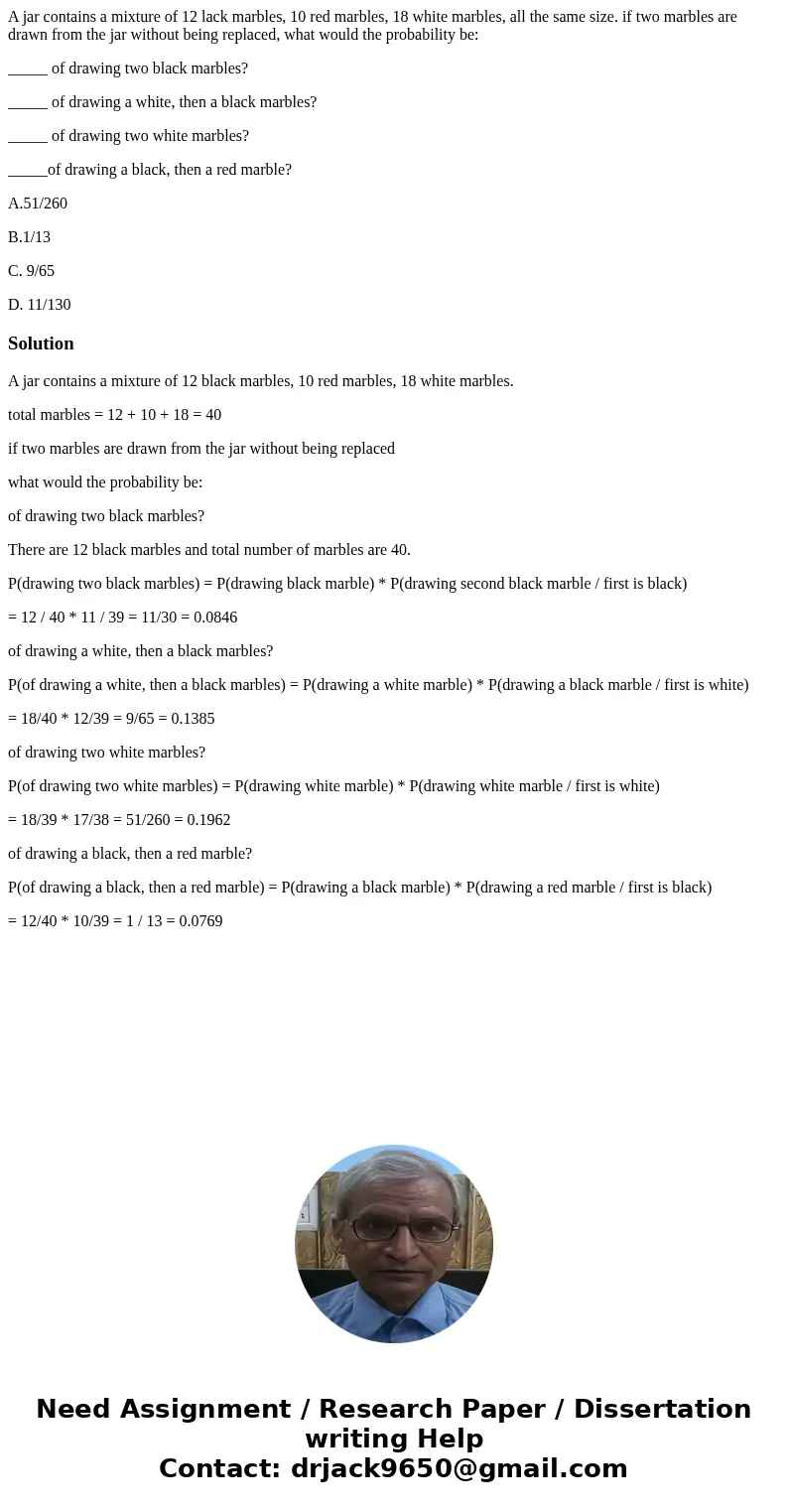A jar contains a mixture of 12 lack marbles 10 red marbles 1
A jar contains a mixture of 12 lack marbles, 10 red marbles, 18 white marbles, all the same size. if two marbles are drawn from the jar without being replaced, what would the probability be:
_____ of drawing two black marbles?
_____ of drawing a white, then a black marbles?
_____ of drawing two white marbles?
_____of drawing a black, then a red marble?
A.51/260
B.1/13
C. 9/65
D. 11/130
Solution
A jar contains a mixture of 12 black marbles, 10 red marbles, 18 white marbles.
total marbles = 12 + 10 + 18 = 40
if two marbles are drawn from the jar without being replaced
what would the probability be:
of drawing two black marbles?
There are 12 black marbles and total number of marbles are 40.
P(drawing two black marbles) = P(drawing black marble) * P(drawing second black marble / first is black)
= 12 / 40 * 11 / 39 = 11/30 = 0.0846
of drawing a white, then a black marbles?
P(of drawing a white, then a black marbles) = P(drawing a white marble) * P(drawing a black marble / first is white)
= 18/40 * 12/39 = 9/65 = 0.1385
of drawing two white marbles?
P(of drawing two white marbles) = P(drawing white marble) * P(drawing white marble / first is white)
= 18/39 * 17/38 = 51/260 = 0.1962
of drawing a black, then a red marble?
P(of drawing a black, then a red marble) = P(drawing a black marble) * P(drawing a red marble / first is black)
= 12/40 * 10/39 = 1 / 13 = 0.0769

 Homework Sourse
Homework Sourse